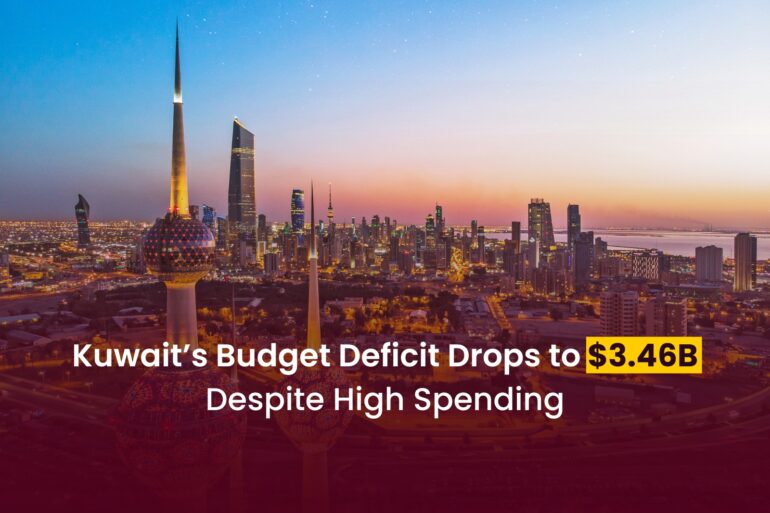Kuwait has announced a significantly improved fiscal outcome: a budget deficit of approximately 1.06 billion dinars (~$3.46 billion) for the fiscal year ended March 31, 2025—considerably better than the 5.6 billion dinar deficit that was initially forecast.
The Numbers at a Glance
Revenues reached 22.06 billion dinars, well above expectations, while government spending stood at 23.11 billion dinars, below the projected 24.5 billion. This combination resulted in a deficit nearly 80 percent smaller than anticipated. Oil revenues alone contributed 19.36 billion dinars, underscoring the continued centrality of energy income to Kuwait’s fiscal health.
What Caused the Improvement?
Higher-than-expected Revenues: Oil prices performed better than forecast, averaging around $75 per barrel compared to the conservative $70 per barrel estimate.
Disciplined Spending Cuts: Government ministries were asked to tighten their belts, with many required to trim about 20 percent of planned expenses. Subsidies, administrative overheads, and non-essential projects saw reductions.
Conservative Forecasting: Kuwait’s budgets traditionally underestimate revenues and overestimate expenses. This conservative approach often creates space for better-than-expected results.
Broader Impacts and Outlook
Short-term Stability: The sharp decline in the deficit provides financial breathing room and signals improved fiscal management.
Development Risks: While careful budgeting is positive, it may also limit investment in vital development projects, particularly in infrastructure, health, and education.
New Borrowing Framework: Kuwait has revived legislation to allow borrowing of up to $99 billion over 50 years, a step toward securing long-term funding for national projects.
Persistent Volatility: Despite the good news, Kuwait’s fiscal health remains tightly linked to global oil prices. Without deeper diversification, the budget will continue to fluctuate with energy markets.
In Summary
Kuwait’s deficit for FY 2024–25 came in far lower than expected, thanks to stronger oil revenues and restrained spending. While this is a positive sign of fiscal discipline, the underlying challenge of building a diversified, resilient economy remains. The real test lies in how Kuwait leverages today’s stability to secure tomorrow’s sustainable growth.

